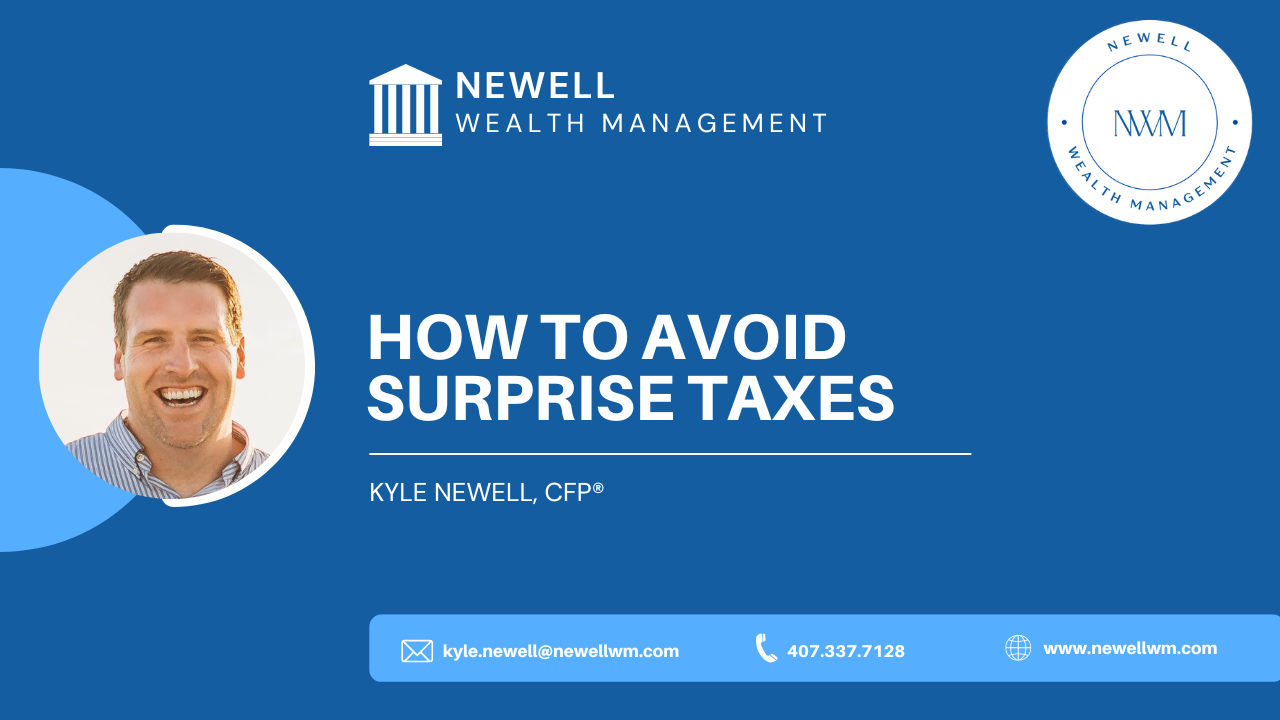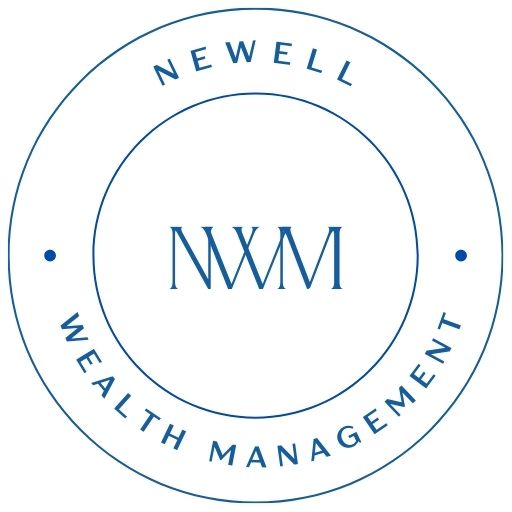How to Avoid Surprise Taxes

We’re just a few weeks away from Christmas. I’m sure everyone is very excited to see what Santa has for you under the Christmas tree. I’m sure it will be something good this year. My wife, Brooke, had me working the day after Thanksgiving to get the Newell household decorated and ready for the festivities.
With all the excitement around Christmas and the anticipation of what gifts are hidden inside the beautifully wrapped packages, there is one gift that no one wants to receive around this time of year and going into next year. No, it’s not coal in your stocking. It’s surprise taxes.

Some people may receive this unwelcome gift. To avoid it, there are a few things that you can be thinking about, doing, or reviewing toward the end of the year to potentially mitigate or reduce taxes that you may owe. You may even want to realize some taxes to give yourself a gift down the road.
1) Review your investments.
The first thing that I think of having surprise taxes is when it comes to investments. Many people are invested in what are called mutual funds. In essence, the way a mutual fund works is you put in your $10,000, I put in my $10,000, and Sue puts in her $10,000. It adds up to become a significant amount of money. Typically, millions, if not billions, of dollars.
However, as the money goes in and out of that fund, the investment manager either has to buy more securities or sell securities that people are taking money from. The market has tanked this year, hopefully not news to you, although it doesn’t make it any easier to hear. This has caused people to sell out their funds and redeem them for cash. If you’re holding on to a mutual fund, even though you haven’t sold it this year, you may still have taxes due associated with that fund because mutual funds have to distribute out their gains and their losses.
The market has done very well in the past ten years until this year. Now, when people are selling out, there may be embedded gains that the mutual fund manager has to realize. This means you may end up having to pay taxes when you didn’t know that you were going to have to. That’s something to look out for when you own mutual funds in particular.
It doesn’t work like that with individual stocks or ETFs. It’s primarily for mutual funds or any non-retirement account. If you have mutual funds in your 401k or IRA, there are no taxes due on those until you take the money out potentially.
2) Take advantage of losses.
The next thing I think about toward the end of the year is taking advantage of your losses. Of course, no one wants to have losses on their portfolio. However, you can use a strategy to realize losses and then invest in something else or wait. There is a waiting period, so you must be very careful when doing this, or you will potentially pay taxes.
There’s a 30-day waiting period when doing this on either side of making the trade. You intentionally take a loss, wait the 30 days, then reinvest. This allows you to realize a loss and still be able to invest in that fund. The reason why you’d want to take a loss is that it’s able to offset gains.
If you don’t have any gains to offset, it can also offset up to $3,000 a year of income. Taking a loss might be a good thing to do and something to consider. The key is that there is a way to realize losses to offset gains from previous years.
3) Do a Roth Conversion.
Lastly, because the market is down, another consideration or strategy at this time of year is a Roth conversion. Essentially, you’re taking your traditional account and turning it into a Roth account. Typically, it’s within an IRA, but it can be done as a 401k. You will pay taxes in the year you do the conversion; however, once you pay the taxes, the Roth account grows tax-free from there, which is why you may want to consider it.
As always, you should talk to your tax advisor and your financial advisor if you have one to make sure these options are suitable for your overall financial situation. If you don’t have an advisor, I’m happy to speak with you.
Important Information
Newell Wealth Management, LLC (“NWM”) is a registered investment advisor offering advisory services in the State of FL and in other jurisdictions where exempted. Registration does not imply a certain level of skill or training. The presence of this website on the Internet shall not be directly or indirectly interpreted as a solicitation of investment advisory services to persons of another jurisdiction unless otherwise permitted by statute. Follow-up or individualized responses to consumers in a particular state by NWM in the rendering of personalized investment advice for compensation shall not be made without our first complying with jurisdiction requirements or pursuant an applicable state exemption.
All written content on this site is for information purposes only and is not intended to provide specific advice or recommendations for any individual. Opinions expressed herein are solely those of NWM, unless otherwise specifically cited. Kyle Newell and NWM are neither an attorney nor an accountant, and no portion of this website content should be interpreted as legal, accounting or tax advice. Material presented is believed to be from reliable sources and no representations are made by our firm as to other parties’ informational accuracy or completeness. There is no assurance that the views or strategies discussed are suitable for all investors or will yield positive outcomes. Investment involves risks including possible loss of principal and unless otherwise stated, are not guaranteed. Any economic forecasts set forth may not develop as predicted and are subject to change. All information or ideas provided should be discussed in detail with an advisor, accountant or legal counsel prior to implementation.
